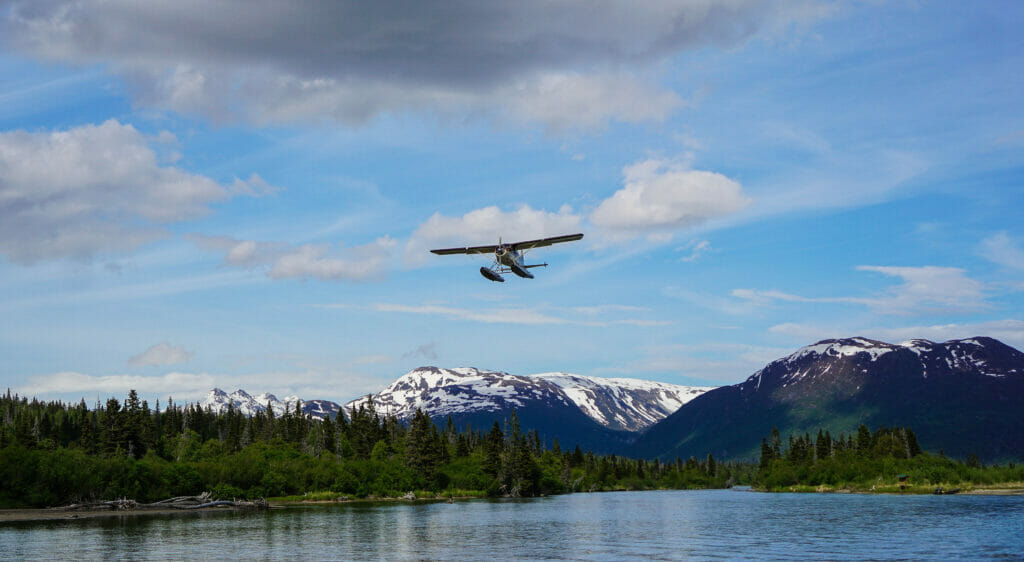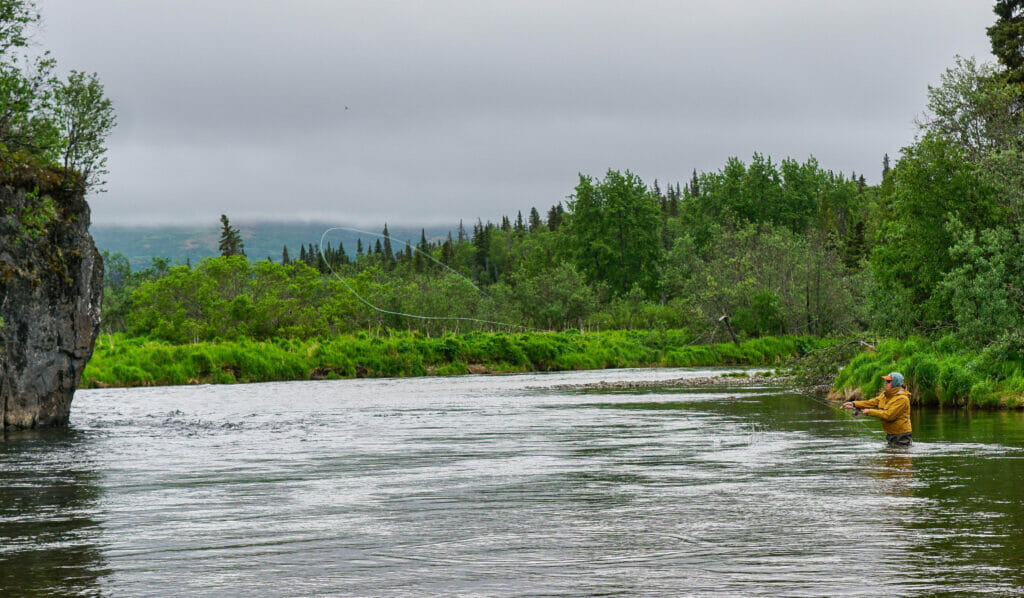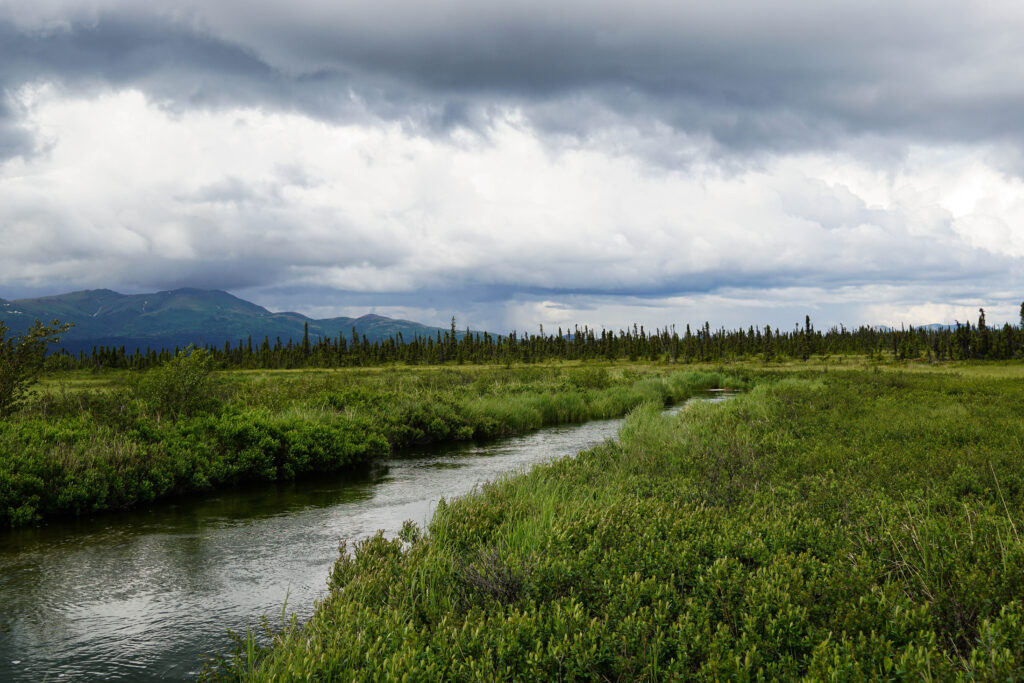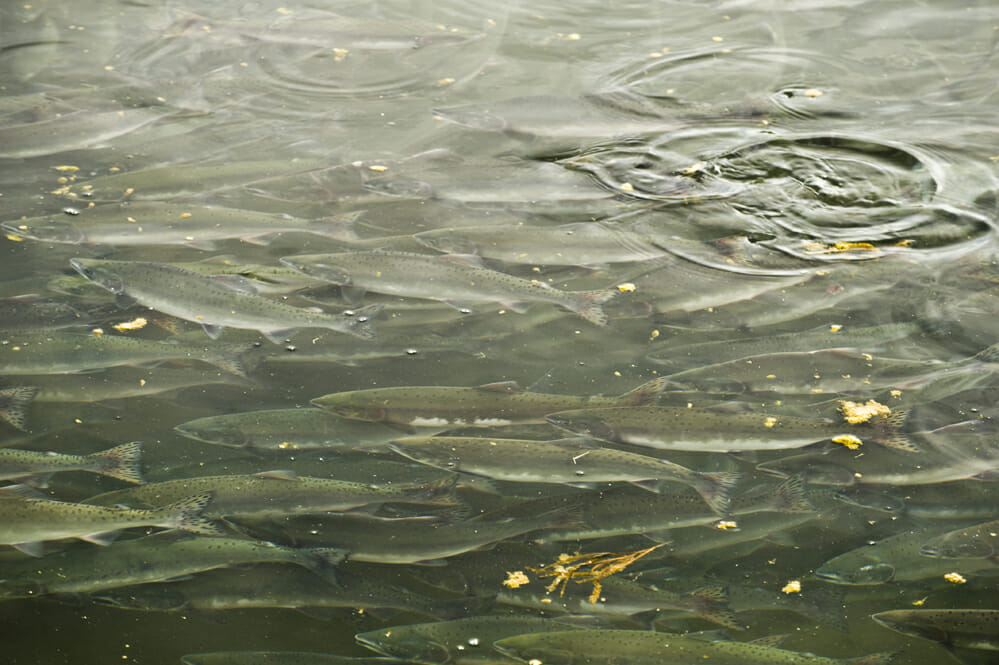Wild salmon pour into the rivers of Bristol Bay right now as they have for centuries, reminding us, once again, how truly incredible this place, its salmon and its way of life are.
Meanwhile, TU’s Save Bristol Bay campaign is gearing up for critical milestones in the coming month — bringing the months and years of hard work to stop a massive, irresponsible mine in the heart of this area to a boiling point.

We are weeks away from seeing a Final Environmental Impact Statement (FEIS) for the proposed Pebble Mine in the headwaters of Bristol Bay, Alaska. This is the culmination of the two-year process of reviewing and analyzing Pebble’s massive, phase one plan and permit application.
- The preliminary EIS described enormous impacts to wetlands and rivers in the heart of Bristol Bay salmon country, and because of the lack of rigor in the process and an incomplete and changing mine plan, these impacts are likely vastly underestimated.
- It includes more than 185 miles of rivers — gone forever, and around 4,000 acres of wetlands destroyed.
- As Pebble continues to grow, so will these numbers. Pebble estimates that it will ultimately need to permanently store 11-billion tons of waste in the heart of America’s salmon country – that’s 4.4 million Olympic swimming pools.
Over the course of past year, citizens and experts have had the chance to review Pebble’s permit application. In doing so, we have found that many of our long-standing concerns with the proposed mine are confirmed in these documents: its massive size, impacts to streams, wetlands, fish and wildlife, and the infrastructure needed to support the mine, which must store mine waste in the heart of salmon country forever.

Trout Unlimited, 685,000 Americans, businesses and multiple federal and state agencies also pointed out dozens of issues with the analysis of Pebble’s plan. Many urged the Army Corps to do a much better job to accurately analyze the full extent of the risks that Pebble could bring to the fish, wildlife, people and businesses in southwest Alaska. Unfortunately, thus far the Corps continues to underestimate the impacts of the mine. Both the extent of the damage currently acknowledged, and the underestimation of impacts, are unacceptable.
Sportsmen and women are an important voice for elected officials to hear on this issue. As we prepare for the important road ahead, the TU Alaska team wants to remind you where we stand and how to best plug in to help right now:
- Make sure you are signed up on:
- TU’s Save Bristol Bay email list
- following us on Facebook and Instagram
Those are the places we share the latest updates, and ways anglers, hunters and outdoor enthusiasts can help.
- Give directly to the campaign here.
- Ask us! A lot of brands and organizations are working on Pebble these days, if you have questions about the latest information or are unclear about the organizations behind the various efforts to stop Pebble, feel free to reach out to TU Alaska staff at any time (mbarker@tu.org). You can meet the TU crew working in Alaska here.
In the coming weeks we’ll have to turn the heat up a notch or two: we’ll need to do all we can to ensure this permit is denied.
This will be the final window before a decision is made on the federal permit, and one of our last chances for friends outside of Alaska to help stop a Canadian mining company from getting the greenlight to dig in the headwaters of the most prolific salmon and trout fishery on the planet. Stay connected to the campaign for the next call to action.
TU has been in the thick of this fight for a long time, and we’re not turning the burner off until Bristol Bay has upfront protections it deserves.
Thank you for submitting comments, attending events, and writing letters – please stay with us and keep speaking up— it’s about time again to turn up the heat for Bristol Bay.

Bristol Bay and the location of the proposed Pebble mine sits on the traditional homelands of Yup’ik, Aleutiiq and Dena’ina people. We are grateful for their mulitgenerational stewardship of the region and fishery, and for their partnership in efforts to preserve the Bristol Bay way of life. Read more about our indigenous partners at United Tribes of Bristol Bay (utbb.org).



